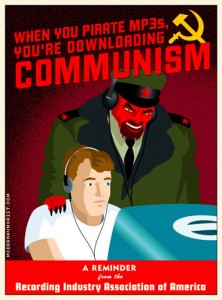Hello everyone. Wow, what a week, right? It’s one of those moments where you remember exactly where you were when the news broke, which you will turn into a story to bore your children and grandchildren with in the future. And it’s impact, real or just emotional, is still being debated, but for me, it was very much a “WTF” moment. I am of course talking about “May the 4th be with you” Star Wars Blu-ray “event”, that took place, surprisingly, on May the 4th. Why, what else do you think I would talk about on *this* blog?
About that other thing, a mission that countless future Call of Duty games will try to replicate, I do have a few things I want to say about it, mainly about the reactions to it, from all sides, but I think that’s best left for my other blog. Except I don’t have another blog. Oh well.
And sorry about last week’s “May Day” “joke”, it seems it didn’t go down too well with some of our capitalist readers judging by the unusually high amount of “un-subscribe me, you commie a**hole” requests.
 So let’s start with copyright news, my fellow freedom loving capitalists. I ended last week’s copyright section with a story about US pressuring Canadia to do the “right thing” in regards to copyright reform. That was from Wikileaks, and more leaks have shown the same kind of pressure being applied to countries all over the world, as I had suspected.
So let’s start with copyright news, my fellow freedom loving capitalists. I ended last week’s copyright section with a story about US pressuring Canadia to do the “right thing” in regards to copyright reform. That was from Wikileaks, and more leaks have shown the same kind of pressure being applied to countries all over the world, as I had suspected.
But who would have thought that little New Zealand, you know the country where Frodo comes from, would be the target of serious US pressure. Seriously, New Zealand? What, are the sheep now downloading pirated songs too? (Sorry Kiwis, it had to be done!) In any case, it appears the US was even willing to pay for NZ’s copyright crackdown, a program created and run by private companies with links back to US companies. It wasn’t a lot of money, but it’s the idea that the US government is paying for something like this that doesn’t sit right with me. Is there nothing else the US needs to spend money on, other than helping the billion dollar entertainment companies solve a problem that may not even be solvable (or a problem) – and then do it all the way on the other side of the world? And why the need to exert pressure on other countries? When did copyright reform, reforms that really only help out one industry (and usually at the expense of another), become a foreign policy thing? Is it right that the US government should be abusing its power and damaging foreign relations in services of the RIAA and MPAA. But it’s not really that surprising though, because we’ve seen what the US is capable and willing to do for the RIAA and MPAA masters, during the ACTA negotiations, and it was our luck that during those negotiations other countries stood firm to US pressure.
Then there was the US offering help to draft NZ’s copyright laws, offering them advice such as “don’t have fair use laws”, the very laws that exists in the US, and other things that would not fly back home, but might just work elsewhere. It’s through these leaks that you get to see how things would be done in the US if the likes of the ACLU and EFF didn’t speak out for us. Might as well just turn the RIAA and MPAA into governmental agencies, with full police *and* judicial powers, and get it over with. Luckily, opposition still exists. Whether it’s just people like you and me ranting into the void of cyberspace, or groups like Anonymous who do things, um, slightly differently. And there are also Internet companies like Mozilla, who don’t like where things are headed and are willing to make a stand. Regular readers will know about the Homeland Security ICE domain seizures, but seizing the domain name is different to seizing the websites, because the websites can still pop up under a different domain name. So to make it easier to find alternative websites for seized domains, a Firefox add-on was released called MafiaaFire Redirector, which automatically takes people to the right website whenever they try to visit a seized domain.
Obviously, a simple add-on like this makes the US immigration and Customs Enforcement’s (ICE’s) “Operation In Our Sites” completely redundant, as people can and still visit the websites that have had their domains seized, and as long as the add-on is updated, ICE can seize all the domains it wants and people can still visit like nothing has happened. And so after millions of dollars of tax payer money wasted, ICE did the next best thing and went after MafiaaFire Redirector, threatening Mozilla to remove the add-on from the Firefox add-on website. What they didn’t expect was Mozilla to refuse the request. Mozilla business and legal affairs guy Harvey Anderson explained the whole thing on his blog, and basically Mozilla refused to be scared into complying with an ICE demand that didn’t come with any legal authorisation at all, nothing to prove that MafiaaFire Redirector was even illegal. And is MafiaaFire Redirector really illegal? All it does is to redirect website requests from one place to another. In effect, ICE has moved on from not allowing these websites to provide content that may be illegal, it’s also saying that people shouldn’t be allowed to visit these websites. It’s one thing to say that a website offering pirated downloads is breaking the law, but to then jump to the conclusion that even people visiting the website should be considered law breakers, and that anyone making it easier for people to get to these sites is also breaking the law. But this is the base argument for censorship and net filters, because I can argue that I can visit The Pirate Bay all day long without breaking a single law by making the decision not to download anything illegal, but the government argues that they can’t trust people like you and me to make this decision. So they have to make it for us, for our own good, to protect us from ourselves, and to protect companies like Sony and Fox from us.
As for the next story, I still can’t decide what it’s all about. CNET has been sued for providing the download for LimeWire. On the surface, this might seem your usual copyright lawsuit. But the people who are behind the lawsuit are the same people behind FilmOn, which itself was sued for copyright abuse by, which I’m sure it was just a coincidence, the parent company of CNET (amongst others). And so it’s hard to know what to make of this. It could be just a “revenge” lawsuit, to get back at CNET’s parent company CBS (whose parent company is Viacom, who is suing YouTube). Or it could be trying to prove a very good point that, the very companies that are suing left and right for copyright are in fact themselves profiting from copyright abuse, in this case, distributing (and promoting, according to the plaintiffs) LimeWire. Or perhaps Alki David, the man behind the lawsuit (and FilmOn), really does think that hosting P2P software is enough when it comes to copyright abuse, something that I don’t think will be easy to argue in court. It’s the same argument as I made above, because I can use The Pirate Bay or P2P tools, but I can also control my actions so that I don’t break any laws, and so it’s not visiting the website or downloading the software that’s illegal, it’s what you do after.

So I said that Blu-ray managed to break a few records recently. It appears I was wrong, but to quote Han Solo, “it’s not my fault”.
What happened was that thanks to Tangled, Tron: Legacy and Harry Potter and the Deathly Hallows: Part 1, it appeared that Blu-ray broke through the 25%, 26% and 27% market share barriers for the first time ever. But then when HMM revised last year’s figures for the week in which Avatar was released, it turns out Avatar was and still is the record breaker, as the 27% barrier was already breached a year ago. And to me, this makes sense. As big as Tron: Legacy and HPDH Pt.1 were, they were no Avatar. Not at the box office, nor as a must-have Blu-ray title. But whenever the record was broken, it was broken, and Blu-ray is quickly becoming a third of all disc sales, and it might not be too long before it overtakes DVDs as the dominant format.
But even as Blu-ray is breaking all the records (or not), DVDs are struggling. Spending on discs is down a massive 10% for Q1 2011, compared to the same quarter in 2010. Analysts are blaming on the poor box office performance of the released titles, which is fair enough. But while Blu-ray has grown, it only grew 10%. Now box office of new releases is also the reason for the smaller growth figure, but I would have though that a new format like Blu-ray, growth is more cumulative, with older titles continue to sell well way beyond the original release date as people who are new to Blu-ray update their collections (which is why you still see older titles pop in the top 10 from time to time. For example, I just purchased Forrest Gump on Blu-ray recently, and I doubt anybody will be still buying this movie on DVD these days.
I will also to look to do a Blu-ray sales review sometime soon, since the 3rd year anniversary of the first Blu-ray revenue analysis has just been reached.

Don't get me wrong, I'm excited about Star Wars on Blu-ray, but the "May 4th" event was a real let down
Then came May 4th, Star Wars Day as it is known because of the play on words (“May the 4th Be With You” geddit?). And so the clever marketing people, assuming for a second that this is not an oxymoron, at Fox and Lucasfilms decided this would be the perfect even to do something special, especially with the Star Wars Blu-ray box set coming in September. So they set up a mini-site, put a counter on it that counts down to May 4th, and got the fans excited. But when the timer counted down to zero, and the website crashed, and then when it did come back on, what was provided was, and still is, a bit of a mystery. So basically, Fox/Lucasfilms wanted people to artificially create social media buzz (yes, because this always works), to “unlock the website”, whatever that means, and when it was all unlocked, it was nothing more than a promo for the Blu-ray set, which has been on sale at Amazon since January. The only useful bit of information was probably the full feature list of the sets, but you know, that’s still promo material, material used to sell something. And this is not how you use social media. I mean, if they had provided something cool, like a free iPhone/Android app, or an exclusive video of one of the new extra features from the boxset, or something that actually befits Star Wars Day, other than very cynical marketing exercise, then perhaps it would have worked better. Or even if this thing was done before the boxset was announced in January, and put on pre-order back then, then it would have been a real surprise and I think that would have been cool, but the marketing people had to put the set out for sale some nine month before it’s actually available, to squeeze in as many sales as possible. And to top it off, the details of the boxset was put into what has to be the world’s slowest scrolling Flash enabled pop-up, making it a chore just to check out what in the boxset that I had already pre-ordered since January (for everyone’s sanity, the features list has been uploaded here in plain text). In other words, in my opinion, this whole event can be described using a word that is an anagram of Sith. I mean, how can they ruin Star Wars. Oh.
![]()
Ah, gaming. So the PSN is still down as I type, with internal testing going on right now, so the public re-launch should not be too far away. I’ve lost track of the number of days the PSN has been down, but I’m not a huge PS3 gamer (or gamer of any system these days, due to lack of available time), so perhaps others will know down to the exact hour, minute and second the network has been down for.
The event of the week, the one that has rehabilitated the phrase “kill site”, taking it back from serial killers and making it a shoe-in for a level name in the next CoD game, has sort of spared Sony a lot of the focus on the PSN disaster. So much that even Stephen Colbert made a mention of the PSN data theft on his show, in the segment where he explains why this is the best time ever to get bad news out, because nobody is paying any attention. Actually, the theft Cobert mentioned was a new one, where an additional 25 million Sony Online Entertainment accounts had been stolen, including thousands of credit card numbers. It seems Sony has finally decided that a security audit would be a good thing to do once in a while, and they’re uncovering all sorts of stuff. Actually, the OBL stuff might actually have actually hurt Sony this week, because I don’t know about you, but the first thing I did after hearing the news (and after I’ve completed all of the day’s work, of course), was to fire up Modern Warfare 2 and replay the Loose Ends mission (the Makarov takedown mission). If I was into online gaming, which I’m not, then I would have gone online to try and recreate what the Navy Seals did in real life, and I bet a lot of other people tried to do the same, but wait, the PSN was down. Oh well.
And so would some have jumped ship over to the Xbox 360? Perhaps, and if enough people do it, then this could really hurt Sony in the long run. Online gaming is all about swarming to the crowd, about getting on the system that your friends are already on, and if just a few of them switch to the Xbox Live, then others may have to follow. And especially with the perception that Xbox Live is already a superior service, this generation of console gaming may just be won, or lost, on online multiplayer. Along with analysts who feel the same, that the PS3, and all Sony hardware, will suffer as a result of this breach of trust, the news also broke that hackers have managed to re-enable OtherOS support for the PS3 via hacked firmware. So the total effect of Sony removing OtherOS, for security or financial reasons, was that the PS3 got hacked, PSN got hacked, data of 100 million accounts get stolen and OtherOS is back anyway. Oh well.
I should probably say something about this whole f***ed up saga, but I think I shall leave it until next week, since I’m already over my word limit, plus let’s see what goodies Sony gives us as compensation before we begin the moaning process.
In other gaming news, the Wii saw an official price drop, and for the first time ever, Wii Sports is no longer part of the console bundle. Nintendo Prez also says he’s not worried about Kinect, because it doesn’t have any hit games and stuff. I’d be interested to see what the Wii 2 can do before expressing my opinion on Kinect vs Wii.
Alright, that’s that for this week. Have a good one.






